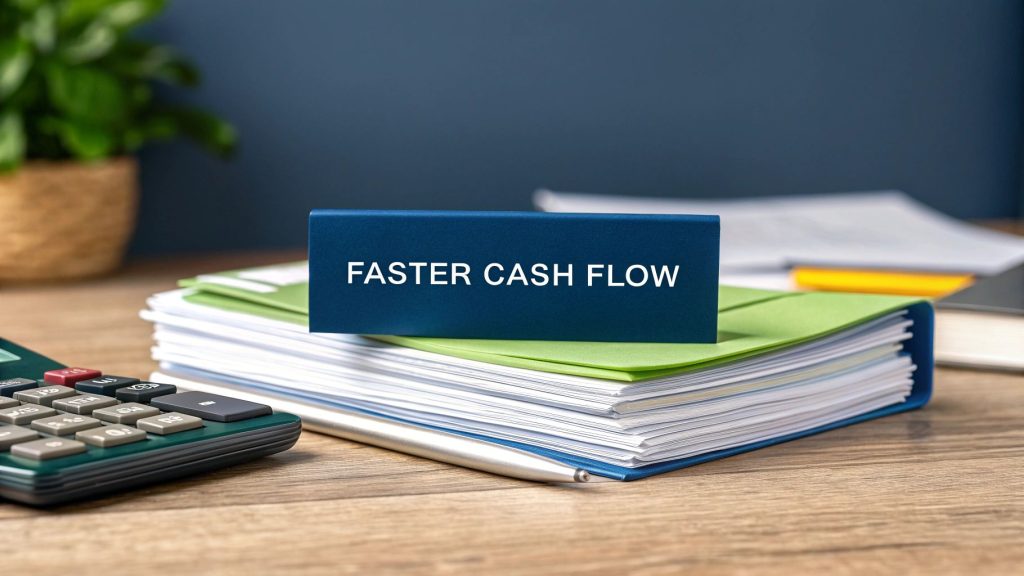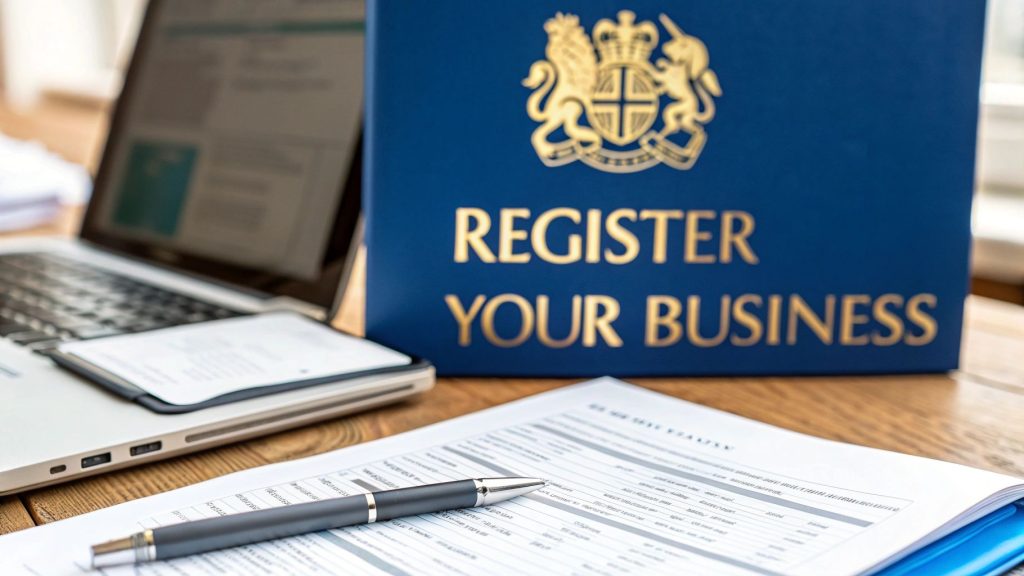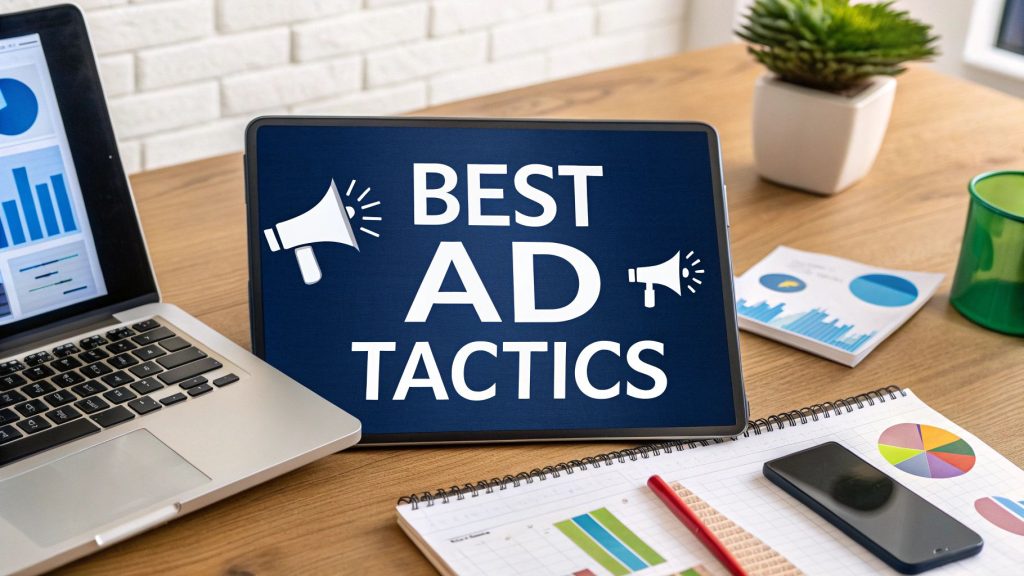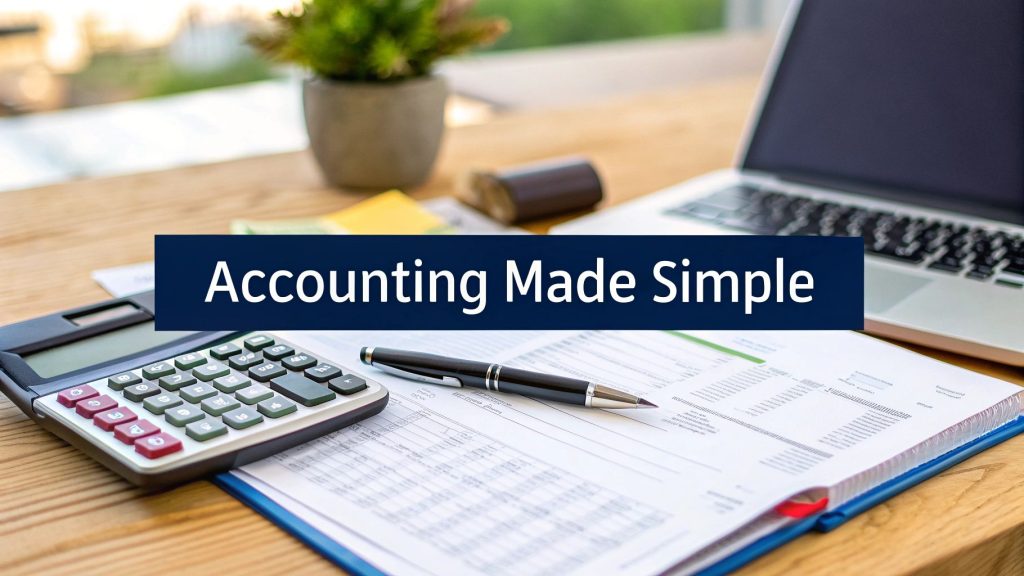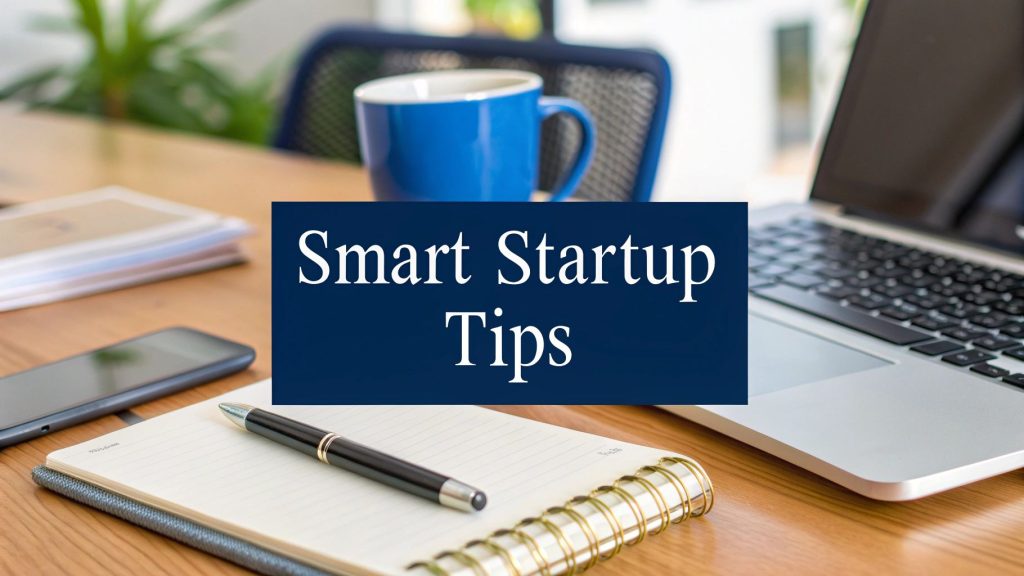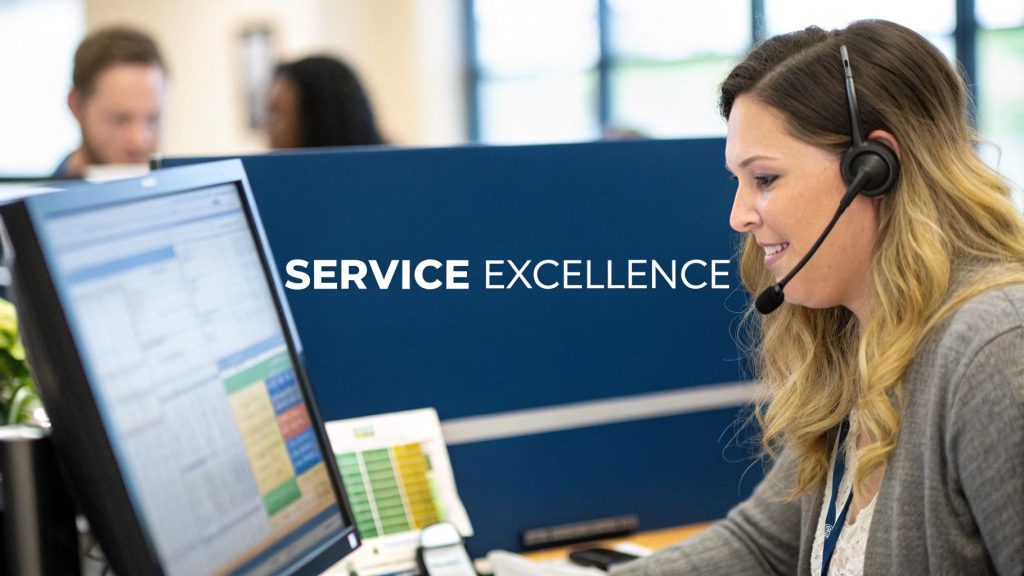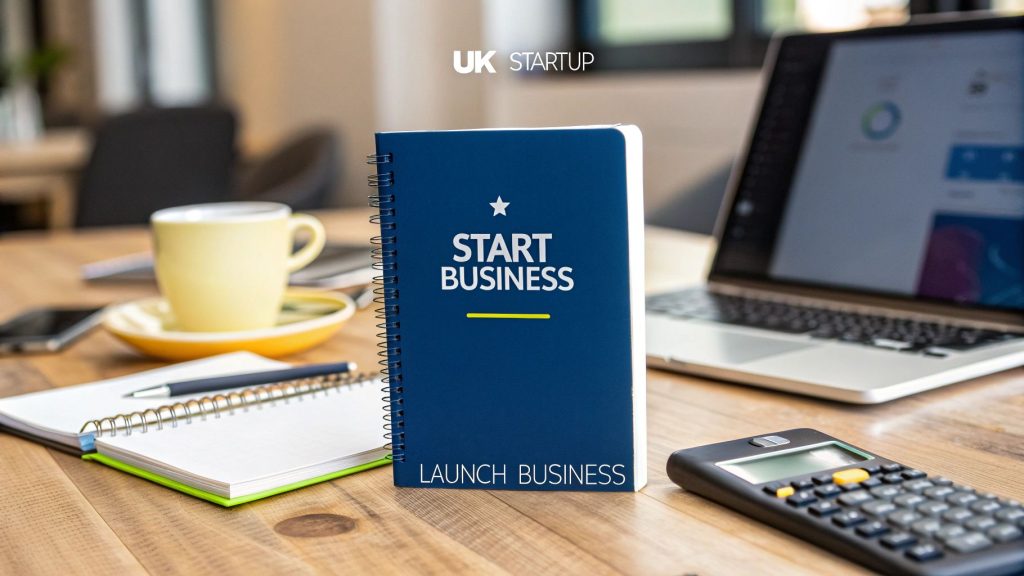Running a Business as a Sole Trader in the UK: Complete Guide for Entrepreneurs
Running a Business as a Sole Trader – Starting out on your own is exciting. For many entrepreneurs, the simplest way to begin trading is as a sole trader. In fact, sole traders are the most common type of business structure in the UK, making up well over half of all small businesses.
But what does it really mean to be a sole trader? What responsibilities will you have, how do taxes work, and is it the right long-term choice? In this guide, we’ll cover everything you need to know about running a sole trader business in the UK — from setup to growth.

What Is a Sole Trader?
A sole trader is an individual who owns and operates their business personally. There is no legal separation between you and your business — you are the business.
That means:
-
You keep all profits after tax.
-
You’re personally responsible for debts and liabilities.
-
You’ll file a personal Self-Assessment tax return each year.
This structure is straightforward and flexible, which is why it’s often the starting point for freelancers, tradespeople, and small service businesses.
Setting Up as a Sole Trader
Becoming a sole trader is refreshingly simple compared to registering a limited company. Here are the key steps:
1. Choose a Business Name
You can trade under your own name or a business name. If you pick a business name:
-
It must not be offensive.
-
It cannot include terms like “Limited” or “Ltd.”
-
You should check availability on HMRC, Companies House (for conflicts), and as a domain name.
2. Register with HMRC
You need to register for Self-Assessment as a sole trader if:
-
You earned more than £1,000 from self-employment in the last tax year, or
-
You need to prove you’re self-employed (for benefits, tax credits, etc.).
Registration is done online with HMRC, and you’ll receive a Unique Taxpayer Reference (UTR).
3. Set Up a Business Bank Account (Recommended)
Although not legally required, a separate bank account helps you keep clear records and makes tax time much easier.
4. Get Insurance (Optional but Smart)
Depending on your trade, you may need public liability insurance, professional indemnity, or even employer’s liability if you hire staff.

Your Responsibilities as a Sole Trader
Running your business as a sole trader gives you control, but also obligations.
Tax and National Insurance
-
File a Self-Assessment tax return annually.
-
Pay Income Tax on profits above the personal allowance.
-
Pay Class 2 National Insurance Contributions (NICs) (flat weekly amount if profits exceed a threshold).
-
Pay Class 4 NICs (percentage of profits above a threshold).
Record-Keeping
You must keep accurate records of income and expenses. HMRC may ask for these if they review your tax return.
Business Licences & Regulations
Certain industries (e.g., food, childcare, construction) require licences, permits, or professional registrations.
VAT Registration (Optional/Compulsory)
-
You must register if turnover exceeds the current VAT threshold (£90,000 in 2025/26).
-
You can register voluntarily if it helps your business appear more established or if you want to reclaim VAT.
Advantages of Being a Sole Trader
- Simplicity
Quick to start, minimal paperwork, and easy to run compared to a company -
Full Control
You make all the decisions and keep all the profits. -
Privacy
Unlike limited companies, your accounts are not published on Companies House. -
Low Costs
No company registration or annual filing fees. Accounting can often be handled with basic software. -
Flexibility
Easy to change business direction or scale down without formalities.
Disadvantages of Being a Sole Trader
-
Unlimited Liability
If your business owes money, your personal assets (savings, car, even your home) could be at risk. -
Tax Efficiency
Beyond a certain profit level (around £35,000–£40,000), you may pay more tax as a sole trader than as a limited company. -
Perception
Some clients and investors prefer working with limited companies. -
Raising Finance
Harder to secure loans, investment, or large contracts. -
Growth Limits
As profits grow, it often makes sense to incorporate to benefit from limited liability and Corporation Tax rates.
Sole Trader Taxes Explained
Let’s break down the main taxes you’ll face.
Income Tax
-
You pay Income Tax on profits (not turnover).
-
The first portion (personal allowance) is tax-free.
-
Rates rise depending on your income band.
National Insurance
-
Class 2 NICs: Flat weekly amount if profits exceed a set level.
-
Class 4 NICs: Percentage of profits above thresholds.
VAT (if registered)
-
Standard rate is 20%.
-
You may opt into the Flat Rate Scheme to simplify administration.
Record-Keeping & Accounting Tips
-
Separate your finances: Use a dedicated business account.
-
Track as you go: Use apps like FreeAgent, QuickBooks, or Xero.
-
Keep receipts: Digital copies are accepted.
-
Log mileage: If you use your personal vehicle for work, track mileage for tax relief.
-
Consider an accountant: Even if you file your own return, a quick consultation can save tax.
Sole Trader vs Limited Company: When to Switch
A common question: When should I move from sole trader to limited company?
Here are signs it might be time:
-
Profits consistently exceed ~£35,000–£40,000.
-
You want to protect personal assets from liability.
-
You need to bring in partners or investors.
-
You want to improve credibility with larger clients.
-
You plan to take advantage of more tax-efficient dividend/salary mix.
Use our Sole Trader vs Limited Company Calculator to see the tax impact for your situation.
Insurance for Sole Traders
Even if you’re small, insurance can protect your business:
-
Public liability: Covers injury/damage claims by third parties.
-
Professional indemnity: Protects against mistakes in professional advice/services.
-
Employers’ liability: Legally required if you employ staff.
-
Business equipment insurance: Covers laptops, tools, etc.
Common Sole Trader Mistakes (and How to Avoid Them)
-
Mixing personal and business finances → Always separate accounts.
-
Underestimating tax bills → Set aside 20–30% of profits for tax.
-
Forgetting NICs → Budget for both Class 2 and Class 4.
-
Not registering for VAT when required → Monitor turnover carefully.
-
Over-reliance on one client → Diversify income sources.
Growing Your Sole Trader Business
Being a sole trader doesn’t mean staying small. Many successful entrepreneurs start this way. Growth strategies include:
-
Building a personal brand to attract clients.
-
Expanding services or introducing products.
-
Outsourcing tasks like bookkeeping, design, or admin.
-
Hiring staff (yes, sole traders can employ people).
| Factor | Sole Trader Advantage | Sole Trader Disadvantage |
|---|---|---|
| Setup | Simple Quick, low cost, minimal paperwork. | Perception Can look less “corporate” to some clients. |
| Liability | Control You retain full decision‑making. | Unlimited Personal assets at risk for business debts. |
| Tax | Straightforward Self‑Assessment; no CT filings. | Less efficient at scale Tax/NIC can be higher as profits grow. |
| Privacy | Private No public company accounts at Companies House. | HMRC compliance Still subject to record‑keeping and reviews. |
| Funding | Low admin Easy to start trading and test ideas. | Harder to raise Investors/banks often prefer limited companies. |
Who Should Be a Sole Trader?
Sole trader status suits:
-
Freelancers and contractors.
-
Tradespeople and small shop owners.
-
Side hustlers testing an idea.
-
Anyone wanting a simple, low-barrier start.
It may not suit:
-
High-risk industries.
-
Ventures seeking investment.
-
Businesses with high turnover/profit ambitions.
Running a Business as a Sole Trader Final Thoughts
Running your business as a sole trader is the fastest, simplest way to get started in the UK. It gives you freedom, flexibility, and minimal admin.
But with simplicity comes trade-offs: unlimited liability, higher tax at certain profit levels, and growth constraints.
The key is to review regularly. Many entrepreneurs start as sole traders to test their idea, then incorporate into a limited company once profits and risks increase.
At GrowMyAcorn, we believe the best foundation is an informed choice. Understand the responsibilities, plan for taxes, and keep your options open for the future.
- Lear more about other business structures in our Choosing the Right Business Structure Guide
- Try our Sole Trader Vs Limited Company Tax Calculator
See our other business structure guides
- Partnership
- Limited Liability Partnership (LLP)
- Private Limited Company (LTD)
- Public Limited Company (PLC)
- Community Interests Company (CIC)

